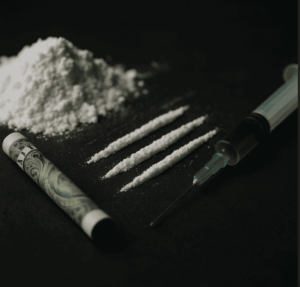Cocaine: The High That Costs Too Much – Understanding Its Dangers and The Road to Recovery
 In recent times, headlines have brought cocaine use back into public conversation. But beneath the glitz and whispers of parties and fame lies a brutal truth — cocaine is not just another recreational drug. It is one of the most dangerous and deceptive stimulants, known to hijack the brain’s reward system and wreak havoc on physical and mental health.
In recent times, headlines have brought cocaine use back into public conversation. But beneath the glitz and whispers of parties and fame lies a brutal truth — cocaine is not just another recreational drug. It is one of the most dangerous and deceptive stimulants, known to hijack the brain’s reward system and wreak havoc on physical and mental health.
🧠 What is Cocaine and Why Is It So Addictive?
Cocaine is a powerful stimulant made from the coca plant. It works by flooding the brain with dopamine, a chemical messenger involved in pleasure and reward. This creates a euphoric high, a burst of energy, increased talkativeness, and a false sense of confidence.
But here’s the catch:
The brain gets overwhelmed. It stops producing dopamine naturally, making you crave the drug just to feel “normal.” Over time, this sets up the perfect storm for addiction.
⚠️ Cocaine is one of the fastest substances to create dependence — often within weeks of repeated use.
💥 How Cocaine Destroys Your Body and Mind
Even occasional use comes with severe risks:
Physical Dangers:
-
Heart attack and stroke, even in young users
-
Seizures and dangerous blood pressure spikes
-
Nose damage and breathing issues (with snorted cocaine)
-
Sudden death from overdose, especially when mixed with alcohol or other drugs
Mental Health Effects:
-
Paranoia, hallucinations, and panic attacks
-
Aggression, mood swings, and impulsive behavior
-
Depression and suicidal thoughts during withdrawal
In long-term users, it can permanently alter brain structure, affecting memory, emotions, and judgment.
🧩 Why Do People Continue Using Despite Knowing the Risks?
The answer lies in the brain’s rewiring. Cocaine creates a cycle of binge and crash — the crash brings anxiety, fatigue, and sadness, which often leads to more use.
Additionally, some people use it to:
-
Cope with pressure or depression
-
Enhance performance or alertness
-
Escape unresolved emotional pain
This is known as dual diagnosis — when addiction coexists with an underlying mental health condition like anxiety, depression, or ADHD.
🛤️ Can Recovery from Cocaine Addiction Happen? Absolutely. But It Needs Help.
Quitting cocaine is not just about willpower — it’s about retraining the brain, managing withdrawal safely, and learning healthy coping skills.
Treatment often includes:
-
Detox and medical management of cravings
-
Cognitive Behavioral Therapy (CBT) to break the thought-use pattern
-
Medication-assisted therapy in some cases
-
Group support and family involvement
-
Neurofeedback and relapse prevention tools
Recovery is possible. We’ve seen people regain careers, rebuild families, and reconnect with their purpose after leaving cocaine behind.
🩺 Don’t Wait for a Wake-Up Call
Whether it’s an occasional use that’s starting to feel like a habit, or a full-blown addiction — getting help early is the best decision you can make.
If you or someone you know is struggling with cocaine or any other substance:
📍 Visit us at Apollo Clinics – Velachery or Tambaram
📞 Call: 8595155808 for confidential help
🌐 Consult Dr. Srinivas Rajkumar T, MD (AIIMS) – Consultant Psychiatrist & Addiction Specialist
🧠 We offer evidence-based, compassionate treatment – both in-person and online.
💬 “Addiction is not a failure of character. It’s a condition that deserves care and treatment — just like diabetes or high blood pressure.”
It’s never too late to begin again. Your brain, your life, and your loved ones deserve that chance.